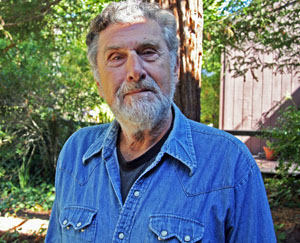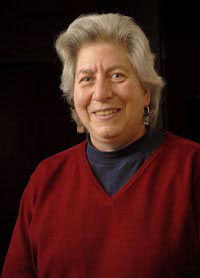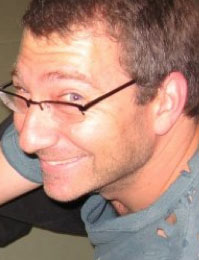Campus News
The Art of Teaching: UCSC professors share their secrets
A panel of highly regarded UCSC professors will share their classroom secrets at a special panel focusing on the Art of Teaching. Those attending the forum in April will hear a spirited discussion about how talented professors help students develop critical thinking, make informed choices and engage more with the world.



One professor had students toss tennis balls at each other. Another asked her class to tell stories about their own minimum-wage jobs. Although disparate in style, both of these classroom exercises are hallmarks of the innovative teaching methods of some of UC Santa Cruz’s most celebrated professors.
Those attending the upcoming Academic Forum—scheduled for Saturday, April 28, from 2:30 to 4:30 p.m. in the Humanities Lecture Hall—will hear a spirited discussion about how talented professors help students develop critical thinking, make informed choices, and engage more fully with the world.
Asked to reflect on his ideas about teaching, one of the featured panelists, renowned social psychologist Elliot Aronson, referenced author Franz Kafka: “He once wrote that a book should be like an axe to break up the frozen sea within us,” Aronson said. “ I have always felt the same way about my teaching.”
Aronson, who has written or edited more than 20 books, including The Social Animal, Nobody Left to Hate, Mistakes Were Made, (but not by me), and last year, a memoir Not By Chance Alone: My Life as a Social Psychologist, spoke of breaking down barriers and bringing people together: “Social psychology is about human interaction: about love, hate, aggression, prejudice conformity and empathy,” he explained.
While some professors might think of large lecture courses as daunting but necessary, Aronson, during his 50 years as a professor, jumped at the chance to teach large intro to social psychology courses.
“ …. most faculty prefer to teach more advanced courses,” Aronson said. “But I love teaching beginners because I consider it a privilege to introduce students to the field.”
Aronson, who taught at UCSC from 1974 to 1994, said he enjoys the challenge of conveying complex material to a large group “in a way that helps students understand it on many levels. But my aim goes beyond that: It is to change the lives of my students—to provide them with the tools, the knowledge and the understanding that will help them make wiser decisions and become more compassionate human beings.”
This kind of passionate teaching philosophy resonates with alumni, who often think of courses with their favorite teachers as defining moments in their UCSC experience.
Bettina Aptheker, a noted professor in the Feminist Studies department, said she is often surprised to run into students who have taken her class more than two decades ago.
Just a couple of weeks ago, a former student told Aptheker one of her courses was part of his healing process after his parents got divorced. “He said the class helped him understand a lot more about the relationship dynamics between men and women,” she said. “That is very beautiful to me, that I could help, that it resonates in his life.”
Aptheker’s research covers such issues as feminist oral history and memoir, feminist pedagogy, African American feminist history, sexuality/queer studies and Jewish studies. In her large lecture classes and small seminars, she strives to create an atmosphere that combines rigorous thinking with the free-flowing exchange of ideas. Sometimes, a large lecture hall environment can make students feel shy. To open up the class she will often use humor, recordings of spoken-word performances and relevant anecdotes from her own life.
Often, she will draw out students by having them talk about their own experience and refer to stories from her own past – the kind of material that informed her memoir, Intimate Politics: How I Grew Up Red, Fought for Free Speech and Became a Feminist Rebel.
When discussing economic justice, Aptheker will ask students to talk about their jobs, often minimum-wage positions or, sometimes, in a workplace where sexual harassment is present. When she lectures about women’s health, she asks students if someone in their family, or someone they know, has cancer “and practically the whole class” raises their hands.
These living examples help to personalize issues that might sound like mere abstractions if the students relied only on texts. Aptheker calls this method “experiential pedagogy” —asking students to draw from experience as a source of insight, “comparing their own experiences to lecture materials.”
On his website, Gabriel Elkaim, assistant professor in computer engineering, includes a statement of teaching philosophy with a strong emphasis on connection, rapport, engagement, curiosity and instilling a sense of wonder:
“As these connections between teacher and student develop, a virtuous cycle emerges,” said Elkaim, who teaches the highly popular “Introduction to Mechatronics” course, in which teams of students build fully autonomous robots in just 10 weeks and present them in a public competition at the end of the quarter. He also helped launch the robotics engineering undergraduate degree program at UCSC.
“The encouragement of a teacher in the role of mentor and leader yields an increasingly motivated and intellectually curious student, which in turn makes the teacher more enthusiastic and effective,” Elkaim said.
Looking back on his past history as a student, Elkaim remembers how the rapport between teacher and pupil can push down barriers:
“Rather than the teacher being ‘nice,’ or even charismatic, what has always been effective for me is when my instructor could communicate an infectious joy and wonder at the world, a sense of our place in it as explorers, and our role in discoveries and rediscoveries of knowledge important to our lives and aspirations.”
Elkaim returned to these lessons when he found himself in the front of the classroom, leading students in a discussion or taking his classes on unconventional “field trips.”
“While a teaching assistant for a graduate level class in dynamics and kinematics, I made a great effort to capture the students’ imagination and explain the problems through often unconventional means.”
Once, in order to explain a complex concept central to his course, Elkaim took the entire class out to the playground and had them throw tennis balls at each other across a rotating merry-go-round.
“After the underlying physics is understood intuitively, the equations merely give shape and form to their understanding and quantify the reality that the students have already understood. The connection students make between the subject under study and the future that they wish to explore is critical.”
These professors will all be part of a panel—“Reflections & Reconnections: Faculty Share their Secrets about what Makes a Banana Slug Education so Special”— that will feature current and emeriti faculty known for their writings and research, as well as their influential teaching styles. Another featured panelist will be Manuel Ares, professor of molecular biology, who received a $1 million grant from the Howard Hughes Medical Institute to pursue innovative approaches to teaching, established an interdisciplinary teaching lab for undergraduates, and helped create a special honors course for freshman biology students.
This event— a cornerstone of the Reunion Weekend 2012 festivities—will highlight distinguished faculty from each academic division.